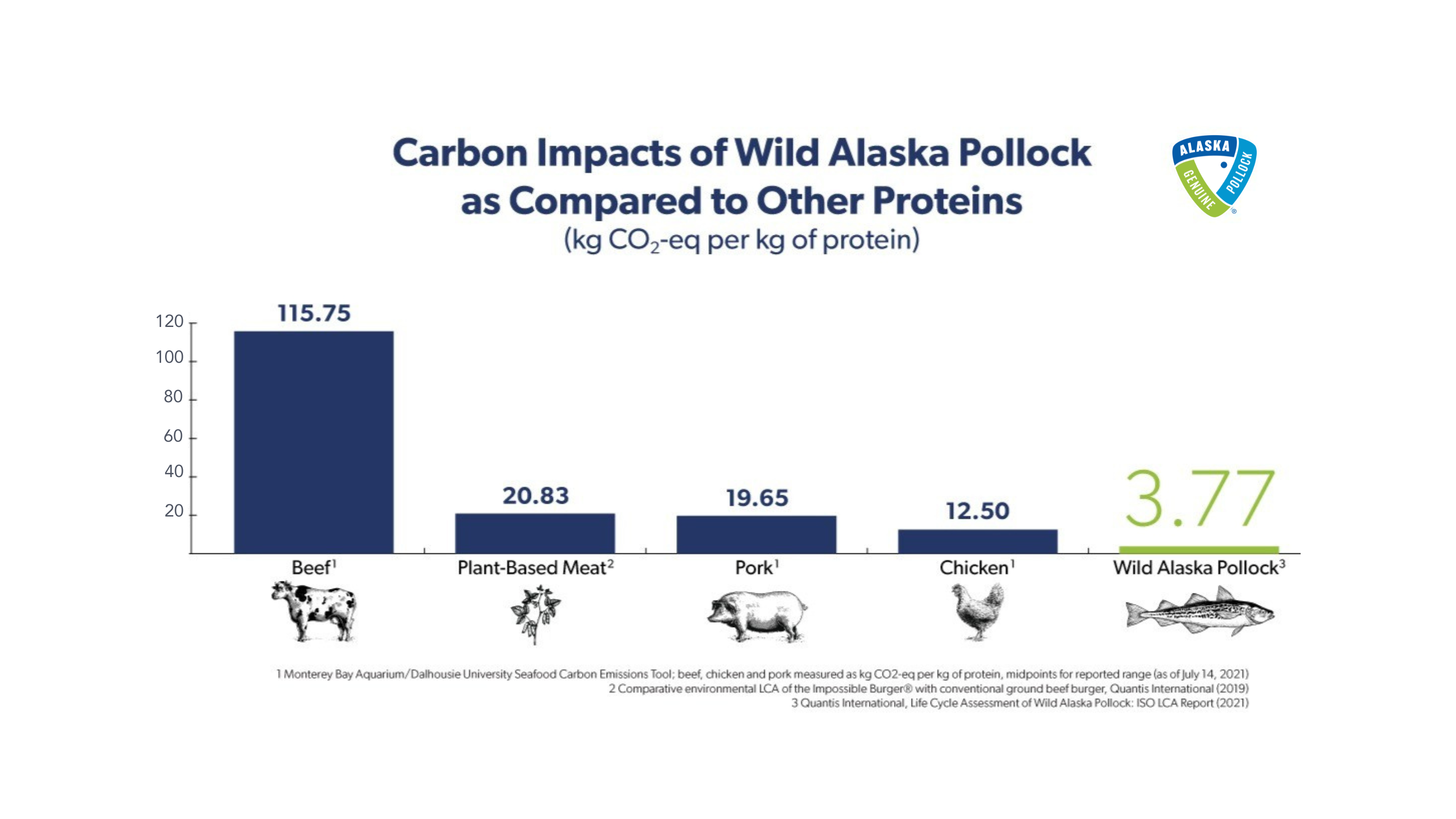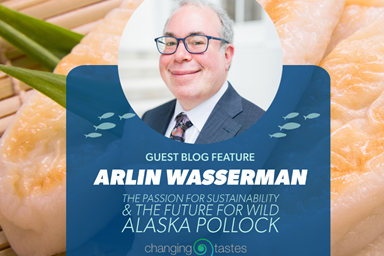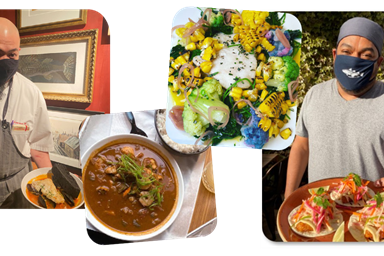Craig Morris , July 26, 2021
Wild Alaska Pollock Makes an Impact

I was a child of the seventies. I know I’m dating myself with that proclamation, but trust me, there’s a point. While I was reaching for my bag of Funions or taco-flavored Doritos before running back outside to play I can guarantee that I wasn’t thinking about anything but filling my hungry belly. And I can safely say my mom when shopping to stock our pantry, wasn’t thinking about anything besides price, taste, and quantity. Neither of us were thinking about the sustainability of foods we were eating—and aside from a select few—“going green” wasn’t yet a thing.
As I grew up, giving up on my dream of being a chef and instead studying meat science, we were focused on efficiency, on quality…again, not on sustainability. It just wasn’t a buzzword.
Yet somewhere between my time working in a meat-packing plant in America’s heartland and overseeing the marketing of our leading agricultural commodities—many of them animal proteins—the movement to think about our planet took hold and sustainability became a term that would forever change the way our food is harvested, produced and packaged.
When I came to the Wild Alaska Pollock industry a few years ago now, I knew that our fish had countless attributes that would make it even more attractive to consumers around the world and one of the leading ones was its low environmental impact, especially as compared to other protein options.
But having had a front-row seat to the sustainability movement in the food and agricultural sector, I knew that knowing we were doing well without the scientifically valid and credible data to back that up, wasn’t worth much. We had to prove that our fishery was as sustainable as we knew it to be.
Thankfully, our industry is led by forward-thinking leaders who also have watched the industry, and the world, evolve. They wholeheartedly supported the investment in a comprehensive, industry-wide Life Cycle Assessment that kicked off more than two years ago.
It was their leadership and foresight that convinced our members to invest their time in completing lengthy surveys that tabulated data—from fuel and water usage to food waste to the energy used to power the lights and run the machines on the boats and in the plants. All of those inputs were collated and analyzed by leading analytics firm Quantis—known for conducting LCAs for some of the most well-known commodities and brands such as, ahem, Impossible Burger.
We then took it a step further and had those results independently verified by a panel of sustainability experts to ensure that the results were beyond reproach and that the entire LCA process adhered to the international standards set by the International Organization for Standardization or, ISO.
In the end, after all those years of work, we’re able to officially shout from the rooftops, loud and proud, that Wild Alaska Pollock is one of the most sustainable protein options on the face of our planet; with a Wild Alaska Pollock fillet being 3.77 kg CO2-eq per kg of protein—over one-tenth of our competitor whitefish (wild-caught Atlantic Cod), significantly less than mainstream Chicken and Pork and utterly insignificant compared to Beef. We’re also lower than rising-star plant-based proteins, by quite the margin, too.
Those results are impressive, and more than anything, are an incredible nod to the work that’s been done by our industry through partnerships with the National Oceanic and Atmospheric Administration (NOAA) and countless other public and private groups to continuously improve and ensure that this precious resource—Wild Alaska Pollock—sustains us for generations to come.
And yet, it’s still hard for me to believe that here we are, in 2021 having honest conversations about the impact of our dietary choices on the planet.
As I write this blog from my office in Seattle, I’m reminded of just a few weeks ago where temperatures here hit record highs—well above 110 degrees Fahrenheit. Those temperatures were forever thought to be impossible in the Pacific Northwest, and yet there we were—many of us without central air conditioning in our homes, waiting out the oppressive heatwave.
Today on the news, we’re watching as wildfires again plague this same region, exacerbated by record droughts across the west coast. Those drought conditions are making those who produce our food make very difficult choices. Whether you’re a climate change denier or a campaigner for climate reform, it’s hard to deny that the weather of late has been pretty extreme. Mother nature is clearly displeased.
I’ll be the first to say that what we eat is arguably not the biggest contributor to climate change. Yet, that said, I do think that people are becoming more and more cognizant that every action they take has an impact, in many cases on our planet. Food is one thing that we as humans can intimately control. If we’re informed, we can make choices based on that information and we can weigh what is or is not important to us, individually.
Our goal at the Association of Genuine Alaska Pollock Producers and the members we serve, now armed with scientifically valid information about Wild Alaska Pollock’s impact on the planet, is to share that information with people so that they can make decisions. If they care about their individual environmental footprint—eating more Wild Alaska Pollock could be part of a solution, even if a small one.
Unlike my seventies childhood, we have more data at our fingertips than ever before and we should all look to use that availability of information to learn and to make informed decisions. While climate change will not be solved by food decisions alone, it may be one small piece of a bigger puzzle. The food brands we know and love know that sustainability plays a factor in their future and are looking to source products that are both good for their brands, good for their consumers, and, ultimately, even in some small way, good for the planet.
Now our industry has the proof to show that Wild Alaska Pollock is just that: good for you and good for the planet.
So, maybe eat a little more of it and have a positive impact along the way.

